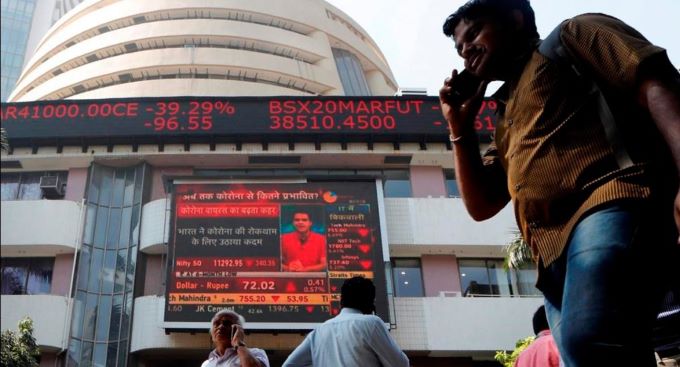Reliance to comply with US sanctions; to recalibrate Russian oil imports
Reliance Industries said it will comply with all applicable sanctions and recalibrate its refinery operations after the US imposed fresh restrictions on Russian oil majors Rosneft and Lukoil. The company said it is assessing the impact on its long-term crude supply deals

New Delhi: Reliance Industries Ltd, India’s largest buyer of Russian oil and most impacted by the latest US sanctions, on Friday said it will comply with all applicable restrictions and will adjust its refinery operations to meet compliance requirements.
In a statement, a company spokesperson said Reliance is “currently assessing the implications” of the latest sanctions on two Russian oil giants – one of which has a long-term crude oil supply agreement with Reliance.
“We have noted the recent restrictions announced by the European Union, United Kingdom and the United States on crude oil imports from Russia and export of refined products to Europe. Reliance is currently assessing the implications, including the new compliance requirements,” the company spokesperson said in a statement.
The statement did not implicitly state whether Reliance will completely stop buying crude oil from Russia.
Reliance, which operates the world’s largest single-site oil refining complex at Jamnagar in Gujarat, purchased about half of the 1.7-1.8 million barrels per day of discounted Russian crude shipped to India. The company refines the crude into petrol, diesel and aviation turbine fuel (ATF), a large share of which is exported to markets such as Europe and the United States at market prices, generating strong margins.
All this may change after US President Donald Trump imposed sanctions on Open Joint Stock Company Rosneft Oil Company (Rosneft) and Lukoil OAO (Lukoil) — Russia’s two largest oil companies that he accuses of helping fund the Kremlin’s “war machine” in Ukraine.
Additionally, the European Union has barred import of fuel made from Russian crude starting January 2026.
“We will comply with the EU’s guidelines on the import of refined products into Europe,” Reliance said. “Whenever there is any guidance from the Indian Government in this respect, as always, we will be complying fully. Reliance has consistently aligned itself with the objectives of ensuring India’s energy security.” The statement implies the company will stop exporting fuel to Europe.
Reliance said, “It remains fully committed to maintaining its longstanding and impeccable record of adherence to applicable sanctions and regulatory frameworks and will be adapting the refinery operations to meet the compliance requirements.” “As is customary in the industry, supply contracts evolve to reflect changing market and regulatory conditions. Reliance will address these conditions while maintaining the relationships with its suppliers,” the statement said. “Reliance is confident that its time-tested, diversified crude sourcing strategy will continue to ensure stability and reliability in its refinery operations for meeting the domestic and export requirements, including to Europe.” Reliance, which has signed a 25-year deal to buy up to 500,000 barrels of crude oil per day (25 million tonnes in a year) with Rosneft, will now reduce and potentially halt all purchases from Russia.
The company has huge business interests in the US and cannot risk attracting scrutiny.
Reliance, which bought an estimated USD 35 billion worth of Russian oil since the start of the Ukraine war in February 2022, started “recalibration” of its imports soon after the European Union adopted its 18th package of sanctions against Moscow in late July this year.
Recalibration is nothing but moving the import requirement to a different region. And this may get expedited now, industry sources said.
Transactions involving the two sanctioned Russian firms need to be wound down by November 21.
Russia currently supplies nearly a third of India’s crude imports, averaging around 1.7 million barrels per day (mbd) in 2025, of which approximately 1.2 mbd came directly from Rosneft and Lukoil. Most of these volumes were bought by private refiners, Reliance Industries Ltd and Nayara Energy, with smaller allocations to state-owned refiners.
Russian crude flows are expected to remain in the 1.6 – 1.8 mbd range until November 21, but direct volumes from Rosneft and Lukoil are likely to decline thereafter, as Indian refiners seek to avoid any risk of US sanctions, said Sumit Ritolia, Lead Research Analyst (Refining and Modelling) at Kpler.
Related News
-
Reliance stays away from Russian oil, public sector firms lap it up
-
Washington intercepts two oil tankers in North Atlantic and Caribbean
-
Reliance says not received any Russian oil in three weeks, none expected in Jan
-
Stock markets trade lower in early trade as selling in Reliance Industries, HDFC Bank dents sentiment
-
Editorial: New political era, new challenges
13 mins ago -
Chiranjeevi receives first invite to Allu Sirish’s wedding
25 mins ago -
Andhra minister Nara Lokesh rallies behind Muslim vendor harassed at Medaram Jatara
1 hour ago -
Tension at Rohith Reddy’s Manikonda residence as police move in over poll violation case
1 hour ago -
Balka Suman alleges Congress disrespecting voters’ verdict in Kyathanpalli
2 hours ago -
Hasannagar youth dies after bike hit by car, run over by RTC bus
2 hours ago -
Karimnagar politics boil over in contest for Mayor’s chair
3 hours ago -
Jagtial municipal chairman row reaches Praja Bhavan amid Congress talks
3 hours ago




